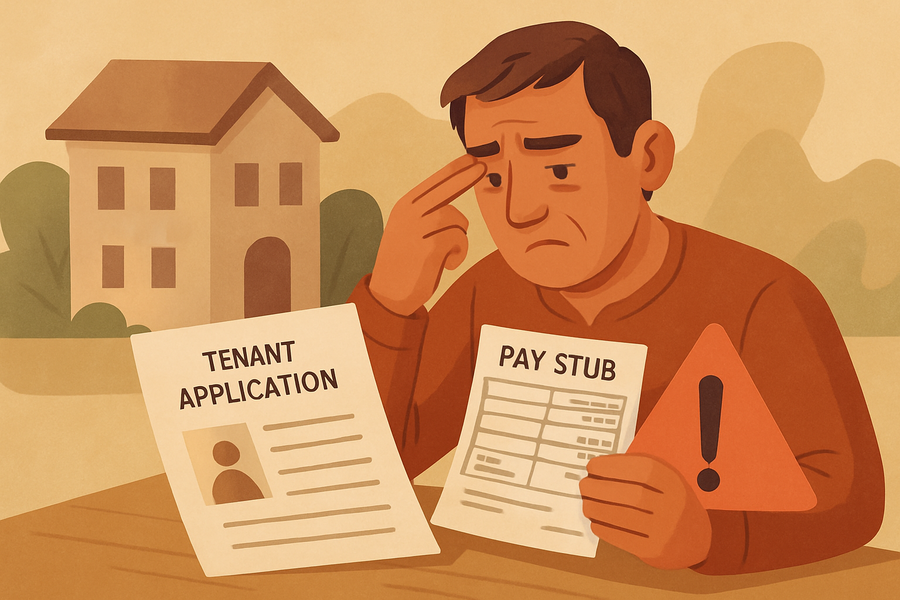Lessons Learned: Representing Housing Providers
I have spent much of my career working in government in both the public and private sectors. Yet, nothing truly prepared me for what would be among the most challenging and dynamic years advocating for housing providers across a multitude of local jurisdictions in Southern California.
When I began representing housing providers, as the Director of Government Affairs for the Apartment Association of Greater Los Angeles, I brought years of experience in New York’s criminal justice sector, dealing with issues related to the correctional system, domestic violence, and probation. Entering the local lobbying arena of southern California’s housing sector was an exciting opportunity to expand my knowledge and delve into something new. However, the reality of the experience was beyond what I could have imagined.
The Pre-COVID-19 Era
One of my first meetings was at the Pasadena City Council where they were voting to amend the City’s Tenant Protection Act expanding upon the circumstances under which housing providers would be required to pay relocation fees. While there were small wins that night, it marked the beginning of my acute awareness of the growing challenges in Pasadena and across southern California.
Rent control was at the forefront both at the state level and locally. Proposition 10 had been defeated. The Los Angeles County Board of Supervisors was finalizing a permanent rent control ordinance. The State Legislature had negotiated a new statewide rent control law, Assembly Bill 1482, enacted in October 2019 and effective January 1, 2020. During the brief period between the new law’s enactment and its effective date, there was a temporary flurry of local regulatory responses. For a moment, it seemed that the State Law would quell local rent control discussions, but then the COVID-19 era changed everything.
Lobbying in the COVID-19 Era
Overnight, the world changed. California instituted “Stay at Home” orders, and State and Local emergency mandates flipped the legislative process on its head. Suddenly, eviction moratoriums became the issue of the day. Every locality instituted its version of the moratorium, and while they shared a common framework, the differences were critical. Navigating this avalanche of information required swift, decisive action. The eviction moratoriums were new and complex, made even more confusing by the layers of regulation: State, County, and Local, resulting in a labyrinth of confusion. To further complicate matters, no one knew how long the pandemic, or these measures, would last.
Staying informed of the ever-changing requirements during the pandemic took herculean efforts. Alongside monitoring the flood of legislative action, there was a new political format to contend with, as City Halls were closed, and meetings were conducted virtually. This shift necessitated new advocacy techniques. Looking back on that time, I am still struck by how quickly we normalized remote advocacy and found new ways to engage on complex and often contentious issues.
Reflections
The three years that followed were filled with moments of joy, frustration, breakthroughs, and disappointments. But through it all, I learned that when you can pivot and build upon core skills, success is not only plausible; it is achievable.
The industry defeated yet another statewide rent control ballot measure – Proposition 21, and a local Burbank Rent Control ballot measure. We also saw the spread of local rent control and other tenant initiatives, notably in jurisdictions where such initiatives had never been contemplated. The pandemic’s impacts and government mandates created the perfect storm, and housing providers bore the brunt of it. As lawful rent collection was effectively halted for years, rental assistance programs intended to support both parties were delayed and subject to administrative hurdles.
I quickly understood that to be effective in this environment, I needed comprehensive knowledge of the issues, the ability to analyze proposals and draft ordinances efficiently, and a firm grasp of ever-evolving pandemic-related City Council actions. Coalition-building became more than just a strategy, it was a necessity. While we hope that legislative action is based purely on policy, the reality is that numerous factors come into play including politics. Understanding the political landscape and navigating it was an integral part of the job.
Lessons Learned
Reflecting on those years, here are a few takeaways:
- Understand the Issues: It is critical to fully understand the issues and nuances. Equally important is presenting them in clear, simple terms that resonate with decision-makers.
- Leverage Institutional Knowledge: A deep understanding of past actions and what initiatives have stalled is vital in shaping a successful lobbying strategy.
- Maintain Composure: When dealing with contentious issues, staying calm, and focused on the objectives is paramount.
- Expect the Unexpected: Political dynamics can shift suddenly and derail the best -laid plans. Being prepared for these shifts is essential.
- Build and Mobilize Coalitions: Effective advocacy hinges on the strength of your coalitions. Mobilizing members and allies is not just beneficial, it is often the difference between success and failure.
As I look back on my time representing housing providers, one lesson stands out above the rest: the power of collective engagement in the political process. During those years, our resilience was the foundation of our efforts, but it was your voices, when raised collectively, that made the most significant impact. The struggles we faced were daunting, and many of you are still feeling the effects of those times, compounded by new challenges that continue to arise.
Today, as the political landscape continues to evolve, your engagement in the political process is of equal importance. The proposals being advanced will shape the future of housing in California, and your input is vital to ensuring that these new policies are balanced and fair. Your involvement can drive meaningful change and lay the foundation for a stable and sustainable future for the housing industry.
While I have since transitioned into Government Relations consulting, these years were both formative and transformational and continue to guide my approach in the world of policy and advocacy.
By Danielle M. Leidner-Peretz, Founder of DLP Government Relations LLC
Danielle M. Leidner-Peretz is the Founder of DLP Government Relations LLC, specializing in expert advocacy and ethical insight. She offers strategic counsel across a range of policy issues, delivering tailored, results-driven solutions for navigating complex government and regulatory challenges. She previously served as the Director of Government Relatons for the Apartment Associatin of Greater Los Angeles. For more information, go to www.dlpgovernmentrelations.com.









